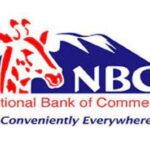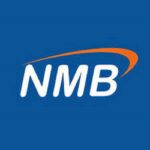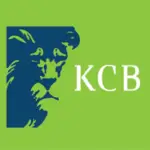Overview
Job Title: Chief Financial Officer
Interest areas: audit, finance, and accounting.
Job ID No: 6639
Job Type: Regular Employee.
Work Style: Office Working.
Date of opening: July 30, 2024
Standard Chartered
OVERVIEW OF THE JOB:
- Planning and financial strategy: Make a significant contribution to the creation and execution of the medium- and long-term financial plans for SCB Tanzania.
- Assure timely and accurate financial reporting in accordance with local, national, and international regulations.
- Educate the management team of SCB Tanzania on the Bank’s risk and profitability methodologies so they may adequately contribute to their implementation.
- Track and enforce adherence to regional capital sufficiency and reserve asset mandates, and notify management of any measures taken to satisfy these obligations.
- Effectively oversee the Bank’s tax matters, notify management about them, and guarantee compliance.
- Make ensuring the property portfolio of SCB Tanzania is efficiently managed and kept up to the highest standards required by the Group and Local Regulations.
- As the local Risk Owner for operational risk sub-types under External Rules & Regulations, you will oversee operational risk for the Finance function by adhering to all relevant regulations.
- Putting into practice and keeping an eye on adherence to local and group accounting standards, guidelines, and practices.
JOB RESPONSIBILITES:
Strategy.
- To be a proactive member of Standard Chartered Bank Tanzania Limited’s Senior Management Team and provide a strategic contribution to the Bank’s leadership and management, including the accomplishment of business-line goals.
- Make a significant contribution to the creation and execution of the medium- and long-term financial plans for SCB Tanzania.
- Growth of SCB Tanzania’s business through participation in budgeting, marketing, and strategic planning.
- The accomplishment of SCB Tanzania’s strategic goals and budgets by means of oversight and timely reporting to the Local Board and Management.
Business.
- Making decisions about daily matters that affect the future course of Tanzanian business.
- Control of operating expenses and capital investment levels, highlighting to management potential opportunities for cost savings.
- Provide guidance on the financial and risk ramifications of allocating resources and making other business decisions; additionally, examine the financial assessment of projects that are put forth and need country management’s support or approval.
- Educate the management team of SCB Tanzania on the Bank’s risk and profitability methodologies so they may adequately contribute to their implementation.
- Participation in scheduled programs promotes staff development in the Finance Division.
Processes
MONEY MANAGEMENT:
- Serve as a neutral resource for financial knowledge and counsel, and offer a dispassionate critique of corporate matters. Included in this ought to be:
- Encourage the balance sheet’s management.
- Provide feedback on the financial performance to the local management, highlighting both positive and negative trends in operating performance, exposure to unacceptable risks, and strategies for increasing profitability and risk management.
OVERSIGHT ACCOUNTING:
Business Information in standards and principles for management information, under the direction of the Financial Controller and Business Finance Managers, will:
- Start, organize, and compile the nation’s budget and forecasts; also, assist in establishing performance goals.
- Create the management accounts for each month.
- Organize the process of creating the business unit reports and make sure they are targeted and pertinent.
- Lead the creation and upkeep of product costing standards and supply data on customer and product profitability.
FINANCIAL ACCOUNTING:
The Group Chief Accounting Officer’s standards and guidelines for financial and UK regulatory reporting must be followed, and the Chief Finance Officer is also accountable for the following duties:
- Reports Required by Local Laws and Regulations.
- To provide local regulators with fast, accurate financial and statistical data.
- To communicate with local regulator(s) regarding matters pertaining to statistical, financial, and other reporting.
- To keep an eye on adherence to regional capital adequacy and reserve asset standards, and to alert management to any necessary action to fulfill these obligations; and
- To guarantee that statutory accounts are prepared promptly and in compliance with local regulations.
Head and Regional Office reporting:
- Utilizing the Group’s accounting policies (or such local variations that have been explicitly approved by Group Finance Division) to compile accurate and timely financial returns.
- To turn in the yearly declaration of adherence to group accounting guidelines; and
- To promptly address any questions that may come up.
Central Accounting and Others:
To keep track of accounting information for:
- Every transaction made at the corporate headquarters.
- Investments that the Bank has in the nation, making sure that, where necessary, all dividends are received on time.
- Transactions (such as faulty and questionable debt provision, taxation provision and payments, liability to damages, redundancy payments, and so forth) that are directly under the operational control of Tanzania management.
- To guarantee the user-friendliness and currentness of all accounting procedures conducted throughout the nation, including those carried out by the Finance Department, branches, and subsidiaries.
- To support product programs by evaluating the implications of proposed new products for accounting, taxation, and regulations and making sure that these are properly managed in the event that the product is introduced.
Administration of General Ledgers:
- To put the Chart of Accounts into practice and oversee its execution.
- To keep the General Ledger’s profit (also known as revenue or income) and cost centers under control; and
- To guarantee that the division in charge of their reconciliation immediately clears any suspense accounts kept in the General Ledger.
Fixed Assets Accounting:
To keep an accurate inventory of fixed assets that is categorized according to kind, age, and location; and
To organize and start routine asset inspections in order to verify the assets’ existence, condition, and accuracy of the accounting records.
Accounting for Trade Creditors:
- To guarantee that authorization processes are followed prior to ordering products and services, as well as prior to paying employees and debtors.
- To verify that the transactions adhere to the established purchasing policies.
- Utilizing credit terms or early payment reductions to guarantee the timely payment of creditors for expenses.
- To verify that costs are recorded in the General Ledger in accordance with Group guidelines.
- To guarantee that the processes for initiating, recording, and paying expenses are well-documented.
- To regularly submit reports to management regarding: expenditure payment; and
- Balances and accounts of creditors.
TAXATION:
- To assist the efficiency of the Bank’s tax affairs and the local tax liabilities, communicate with the Group, regional, and local tax departments as well as local tax consultants.
- Minimize the Bank’s tax burden by overseeing compliance with local corporate, income, and other tax regimes (such as sales and withholding taxes); and
- Effectively oversee the Bank’s tax matters and notify management about them.
INSURANCE:
- Make sure that the data required for managing and renewing the Group Insurance Program is appropriately collected, evaluated, and shared with Group Insurance Risk Management, with the assistance of local management.
- Verify that local insurance adheres to the Group Insurance Manual’s principles as well as any applicable laws, tariffs, or practices; and
- Determine what kind of additional insurance is needed locally and make the necessary purchases, subject to the previous approval of Group Insurance Risk Management, in consultation with local management and/or the local representatives of the Group Insurance broker.
Supply chain management and corporate real estate services (CRES) .
- Make sure the property portfolio of SCB Tanzania is efficiently managed and kept up to the highest standards required by the Group.
- To the pleasure of the company, oversee all property-related development projects and contribute to any fresh initiative that expands the property portfolio.
- Ensure that the purchase and supply activities of SCB Tanzania are efficiently handled, with a focus on cost containment to maximize the Bank’s benefit; and
- Keep an eye on the capital and operating expenditure plans to make sure the allocated amount is being followed.
Individuals & Skills /People and Talents:
- Provide Tanzania’s financial function with excellent leadership and personnel development:
- Encourage and assist the SCB Tanzania Finance team members who serve the bank’s management and other employees. to guarantee that the finance team members of SCB Tanzania possess the accounting and product expertise required to offer the required support.
- To guarantee that professionally qualified personnel are assigned to Tanzania’s finance department.
- To assess, oversee, and advance the careers and skill sets of Tanzania’s financial professionals, especially by putting in place suitable training programs; and
- Raise the knowledge and comprehension of financial management strategies among the Country Management Team’s non-financial members.
Risk Management:
- As the local Risk Owner for operational risk sub-types under External Rules & Regulations, you will oversee operational risk for the Finance function by adhering to all relevant regulations.
- Capital prudential standard.
- Standard of Prudence: Liquidity.
- The term “prudential standards” refers to regional capital and liquidity regulations.
- You are in charge of making sure the local branch or subsidiary has enough capital and liquidity and continues to comply with regulations as the Risk Owner for the local capital and liquidity regulatory requirements.
- Perform second line risk ownership duties in accordance with the Operational Risk Framework (ORF) and related rules and procedures, with regard to the operational risk sub-type. Including the following, but not only.
- By regularly checking risk and control indicators, you can make sure that the necessary control criteria are being fulfilled.
- When control standards are not being met, draw attention to them and report them (as needed). You can also bring up any gaps or flaws in the control design with the Group Risk Owners.
- First line risk identification, residual risk assessments, and mitigation plans should be questioned and, when necessary, approved, taking into consideration modifications to the internal and/or external environment.
- Examine, contest, and endorse requests for risk acceptance submitted to the appropriate risk acceptance authority by the process owner(s) in the relevant country.
- Keep an eye on “live” risks and work with front line owners to make sure the right management measures are implemented to lessen their effects.
Governance:
- The main duty for implementing and maintaining internal financial controls, which guarantee the accuracy of financial reporting by offering a reasonable level of assurance that appropriate accounting records are kept and that the financial data used for publication or internal business use is reliable, is in addition to playing a crucial role in the Bank’s internal control and risk identification policies. Thus, among other things, have obligations.
- Putting into practice and keeping an eye on adherence to local and group accounting standards, guidelines, and practices.
- Keeping up with the regional general ledger.
- Putting together thorough and precise financial evaluations and reports.
- Keeping an eye on major financial risk indicators; and
- Assisting in the enhancement of the Bank’s overall control environment.
Assurance for Operational Risk Management (ORMA):
- Assure adherence to the Operational Risk framework, which includes reporting and the efficient use of the risk toolbox (self-assessments, KCIs, CSTs, etc.).
- Risk control ownership of financial risk entails developing and maintaining risk identification and measurement as well as making sure that material risk exposures and associated issues are duly disclosed to the Board or a board committee, as well as the competent governance committees.
Corporate & Regulatory Conduct:
- Act with integrity and abide by the group’s code of conduct and values.
- Assume personal accountability for ensuring that Standard Chartered Bank adheres to the highest ethical standards, particularly those related to business and regulation. This entails being aware of and making sure that all relevant laws, rules, regulations, policies, and the Group Code of Conduct are followed in letter and spirit.
- Take the lead in helping Tanzania Business accomplish the goals outlined in the Bank’s Conduct Principles:
- Identify, escalate, reduce, and resolve risk, conduct, and compliance issues in an efficient and cooperative manner.
Key Stakeholders:
Internal
- Team management for the country.
- Managers of Business Finance.
- Controller for Group Taxation.
- Regional Office for Africa.
- Department of Group Finance.
- Group Treasury and Corporate Taxation.
- Group Market Risk.
External:
- Central Bank of Tanzania.
- External auditors.
- Tax Authorities.
- insurers.
- Outsourced Companies.
Other Responsibilities:
- Make a major contribution to the high caliber of decision-making at the highest level within SCB Tanzania. a participant in the Assets and Liabilities Committee (ALCO) and the Management Committee.
- Impact and, in certain situations, assist the Bank of Tanzania in managing its currency position, liquidity, and deposits.
- Resolution on the necessity of staff training for the Finance Division.
Job Qualification:
- A professional accounting qualification together with a degree in accounting and finance from university.
- 10 or more years of expertise in the financial services industry and in financial management.
- CPA or ACCA status is a professional accounting qualification.
- More than eight years of experience working in a bank or other sizable commercial organization in senior financial management and administration roles.
- Extensive familiarity with banking, taxation, and accounting principles.
- A thorough comprehension of banking procedures.
- Superior familiarity with and expertise using information technology in contemporary business; and
- Strong interpersonal, communication, and leadership abilities.
Particular Technical Skills for Each Role:
- Important performance metric.
- Efficient exchange of ideas.
- Originality.
- Planning: Strategic and Tactical.
- Commutations in writing.
- Positioning and marketing plan.
Concerning Standard Chartered:
Being a global bank, we are both large enough to have an influence and agile enough to act. We have dedicated ourselves to improving the lives of our clients, communities, and one another for over 170 years. We confront the status quo, relish a challenge, and take pleasure in seizing fresh chances to improve and advance. We would love to speak with you if you’re seeking for a meaningful job and would like to work for a bank that is changing the world. We are excited to see what talents you can bring to the table and you can count on us to celebrate your special talents.
Our brand promise to “be here for good” and our mission to “drive commerce and prosperity through our unique diversity” are realized in the ways that each of us embodies our core values. You will witness how we value diversity and promote inclusion when you work with us.
Collectively, we:
- Put the client at the center of all we do, act morally and assertively, challenge one another, and lead honorable lives.
- Never give up, always looking to innovate and better, maintaining simplicity and picking up lessons from both successful and unsuccessful endeavors.
- We can be more authentic, inclusive, see the best in people, and work together to create long-term solutions when we come together.
What we provide is:
We provide a competitive compensation and benefits to support your emotional, physical, financial, and social welfare in accordance with our Fair Pay Charter.
- Primary bank funding for health, life, and retirement accounts; in certain places, optional and flexible benefits are also offered.
- Time off includes public holidays and annual leave, which add up to a minimum of 30 days. It also includes sabbatical leave (12 months maximum), parental/maternity leave (20 weeks), and volunteer leave (3 days).
- Flexible work arrangements with adjustable schedules that are centered on home and office locations.
- Proactive support for well-being via Unmind, the industry-leading digital platform for wellbeing, resilience and other human skill development courses, worldwide EAP, sick leave, mental health first responders, and various self-help kits.
- A culture of ongoing learning that fosters your development, offering chances for skill upgrading and retraining as well as access to online, off-line, and physical learning resources.
- Being a member of a diverse, values-driven organization where everyone feels valued and free to reach their full potential across all teams, business divisions, and geographic locations.


